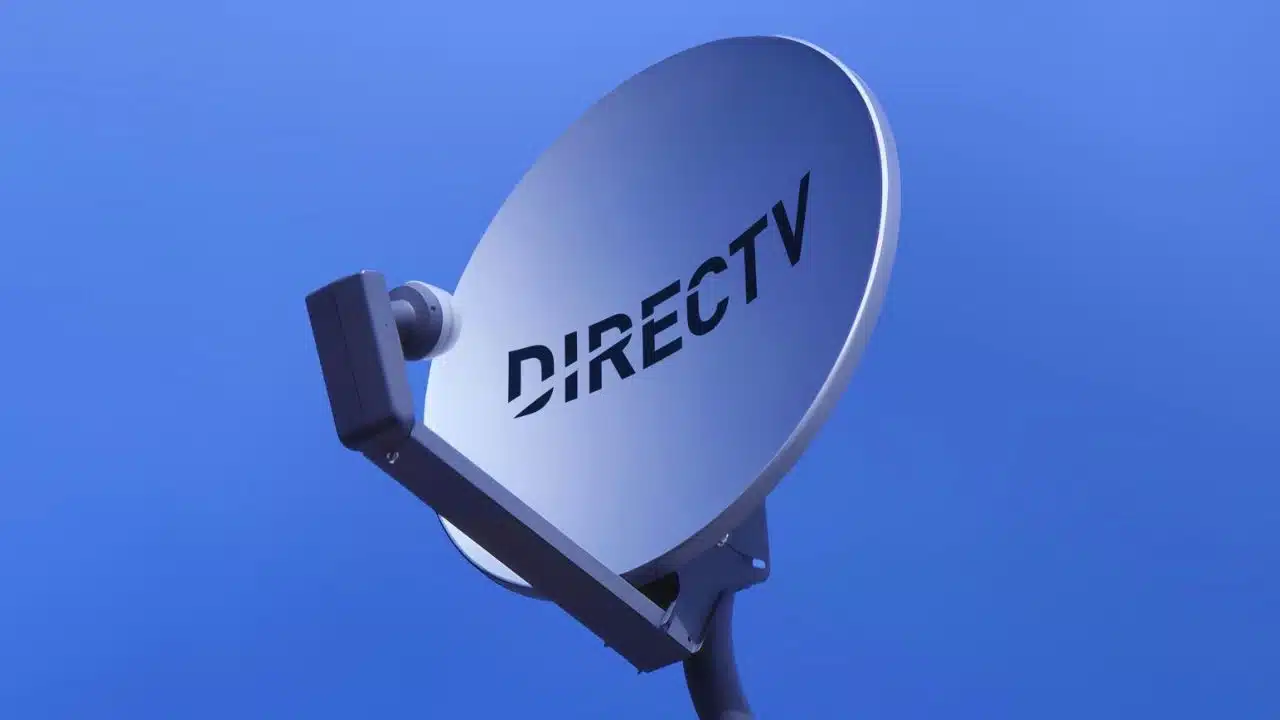On Sunday, Disney made the significant decision to pull its ABC stations, ESPN, and several other cable networks from DirecTV’s lineup after negotiations between the two companies failed to result in a new distribution agreement. This abrupt move has left millions of sports fans across the United States without access to major events, causing widespread frustration and sparking a heated public dispute between the entertainment giant and the satellite TV provider.
Major Sports Events Affected as Channels Go Dark
The timing of the blackout could not have been worse for sports enthusiasts. The expired agreement between Disney and DirecTV led to more than 11 million satellite subscribers suddenly losing access to key Disney-owned networks just as the college football and NFL seasons were beginning. The blackout happened mere hours before the highly anticipated Sunday night football game between the USC Trojans and LSU Tigers, a matchup that had fans across the country eager with excitement. Additionally, viewers found themselves cut off from live coverage of the US Open tennis tournament, one of the most prestigious events in the tennis calendar. With the NFL season opener just days away, the impact of this blackout extends far beyond just one weekend, affecting millions who rely on DirecTV for their sports entertainment.
Rob Thun, chief content officer at DirecTV, did not hold back in expressing his frustration with Disney’s decision. In a strongly worded statement, he criticized the company for prioritizing profit over consumer interests. “The Walt Disney Co. is once again refusing any accountability to consumers, distribution partners, and now the American judicial system,” Thun said. He went on to accuse Disney of living in a “business of creating alternate realities,” implying that the company’s approach to negotiations was detached from the practical concerns of consumers and partners alike. Thun argued that Disney’s actions were part of a broader strategy to maximize control and profits at the expense of viewers, who now find it increasingly difficult to access the content they want at a reasonable price.
Broader Impact Beyond Sports: Multiple Networks Affected
While the blackout of ESPN and Disney-owned ABC affiliates has drawn the most attention due to its impact on sports fans, the effects of this standoff extend to a much broader range of content. A number of other networks owned by Disney have also gone dark on DirecTV, including popular channels like FX, National Geographic, and Freeform. These channels offer a diverse array of programming, from critically acclaimed dramas and documentaries to family-friendly content and reality shows. The sudden disappearance of these networks from DirecTV’s lineup has left a significant void for many viewers who rely on them for their daily entertainment.
In response to DirecTV’s accusations, Disney’s top executives—Dana Walden, Alan Bergman, and ESPN Chairman Jimmy Pitaro—issued a joint statement defending the company’s position. “DirecTV chose to deny millions of subscribers access to our content just as we head into the final week of the US Open and gear up for college football and the opening of the NFL season,” they said. The executives emphasized that Disney was not unwilling to negotiate, but rather was committed to securing a deal that accurately reflected the value of its extensive portfolio of television channels and programs. They stressed that Disney had extended offers to DirecTV similar to those accepted by other distributors, which would have provided the satellite provider with the flexibility it sought. However, they made it clear that Disney would not agree to any terms that they felt undervalued their content.
The Stalemate: Inside the Breakdown of Negotiations
The breakdown of negotiations between Disney and DirecTV did not happen overnight. According to sources familiar with the discussions, the two companies had been engaged in talks for several months, trying to hammer out a new distribution deal that would satisfy both parties. As the deadline approached, Disney offered DirecTV a package heavily focused on sports content. This proposed deal included ESPN networks, which are home to some of the most-watched sports broadcasts in the United States, as well as ABC sports broadcasts. In addition to the sports-centric package, Disney also offered a selection of its linear channels—traditional TV channels that broadcast content at scheduled times—along with some of its direct-to-consumer services, such as Disney+ and ESPN+.
From Disney’s perspective, the rates they were asking from DirecTV were in line with what other providers were paying and were justified by the value of Disney’s entertainment portfolio. A spokesperson for Disney argued that the rates were fair and reflected the quality and variety of content offered by Disney’s channels. However, DirecTV saw things differently. The satellite provider claimed that Disney’s demands were unreasonable and included requirements that went beyond just financial terms. DirecTV alleged that Disney insisted on waiving any future legal claims that DirecTV might bring against the company for anti-competitive behavior. This demand, according to DirecTV, was a major sticking point in the negotiations and one that they could not accept.
The Changing Landscape of Television: Cable vs. Streaming
The collapse of these talks comes at a time of significant change within the television industry. For years, satellite and cable providers have been grappling with the rise of streaming services, which offer viewers a more flexible and often more affordable alternative to traditional TV bundles. As a result, these providers have been pushing for skinnier, more customizable bundles that allow consumers to choose a smaller selection of channels at a lower price. However, many programmers, including Disney, have resisted this trend, preferring to bundle their channels together in packages that require consumers to pay for a broader range of content.
Rob Thun highlighted this issue in an open letter published just before the deal’s collapse. He pointed out that while direct-to-consumer streaming services have evolved to meet changing consumer demands, traditional pay TV packages have largely remained the same. “Instead of allowing distributors like DirecTV to also develop smaller, more tailored packages at prices that reflect the value they get from the content, programmers have continued to impose and enforce strict bundling requirements through exorbitant minimum penetration rates—the minimum proportion of a distributor’s subscribers required to access a channel,” Thun wrote. His comments reflect the growing tension between traditional TV providers, who are struggling to retain subscribers, and media companies like Disney, who are increasingly focused on their streaming services.
Streaming Wars and Consumer Backlash: A Growing Frustration
The current standoff between Disney and DirecTV is just one example of the broader battle taking place within the media industry as companies pivot toward streaming. In recent years, legacy media companies like Disney, Warner Bros. Discovery, and Paramount have been aggressively building out their streaming platforms in response to the success of services like Netflix. These companies are increasingly airing their premium content—such as blockbuster movies, exclusive TV shows, and live sports—on their own streaming services, often at the expense of traditional cable and satellite distribution.
This shift has not gone unnoticed by consumers, many of whom are growing frustrated with the increasing fragmentation of content across multiple platforms. Rob Thun captured this sentiment in his statement, saying, “Consumer frustration is at an all-time high as Disney shifts its best producers, most innovative shows, top teams, conferences, and entire leagues to their direct-to-consumer services while making customers pay more than once for the same programming on multiple Disney platforms.” Thun accused Disney of using its market power to drive up prices while simultaneously making it harder for consumers to access the content they want through traditional means. This, he argued, was the real “magic” of Disney—forcing consumers to pay more while offering less.
A Precedent for Negotiations: Lessons from the Charter Deal
The standoff between Disney and DirecTV is not the first time that Disney has found itself in a high-stakes negotiation with a major TV provider. Last year, Disney faced a similar situation with Charter Communications, one of the largest cable operators in the United States. As the deadline for a new distribution deal approached, Charter demanded greater flexibility in its bundles and access to Disney’s streaming services. The negotiations were tense, and for a brief period, Disney-owned channels were pulled from Charter’s Spectrum service over the Labor Day weekend. However, the two sides eventually reached an agreement that allowed Charter subscribers to access Disney+ and ESPN+ services as part of their cable package.
The Charter deal was seen as a significant win for the cable provider, as it gave them the flexibility they had been seeking while also allowing Disney to continue distributing its channels to millions of subscribers. For Disney, the deal demonstrated the company’s willingness to adapt to the changing demands of the market while still maintaining control over its content. However, the current standoff with DirecTV suggests that the balance between flexibility and control is still a contentious issue, and one that will continue to shape the future of television distribution.
The Legal Battle: Fubo’s Lawsuit and the Federal Judge’s Decision
As if the challenges posed by the shifting media landscape were not enough, Disney and other major media companies are also facing legal battles that could have significant implications for their business strategies. Earlier this month, a federal judge temporarily blocked the launch of a new sports-focused streaming venture that Disney had planned in partnership with Warner Bros. Discovery and Fox Corporation. The joint venture was intended to bring together the sports media rights of the three companies into a single streaming service, offering consumers a one-stop shop for live sports.
However, the venture was put on hold after Fubo, a smaller rival sports streaming service, filed a lawsuit alleging that the new service would be anti-competitive. Fubo claimed that Disney, Warner Bros. Discovery, and Fox were attempting to leverage their control over sports media rights to edge out competitors and create a monopoly in the streaming market. The federal judge’s decision to temporarily block the launch of the venture dealt a major blow to Disney’s efforts to expand its streaming footprint in the sports arena. The case is still ongoing, and its outcome could have far-reaching consequences for the future of sports streaming.
A Tense Standoff with No Clear Resolution
The ongoing dispute between Disney and DirecTV is a reflection of the broader challenges facing the traditional pay TV industry as it grapples with the rise of streaming services and changing consumer preferences. As media giants like Disney continue to prioritize their direct-to-consumer platforms, the landscape of television distribution is undergoing a rapid transformation. For consumers, this shift means more options for accessing content, but also more complexity and higher costs.
For now, millions of DirecTV subscribers are left without access to some of the most popular channels on television, with no clear resolution in sight. The negotiations between Disney and DirecTV are likely to continue behind closed doors, but the outcome remains uncertain. As the battle for control over the future of television plays out, one thing is clear: the days of the traditional cable bundle are numbered, and the transition to a new era of streaming is well underway.






































